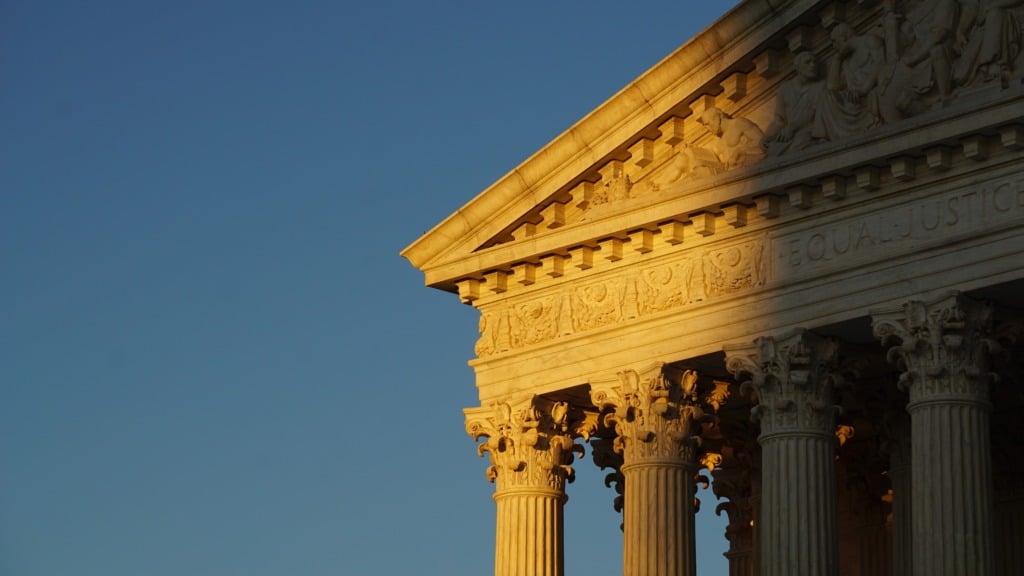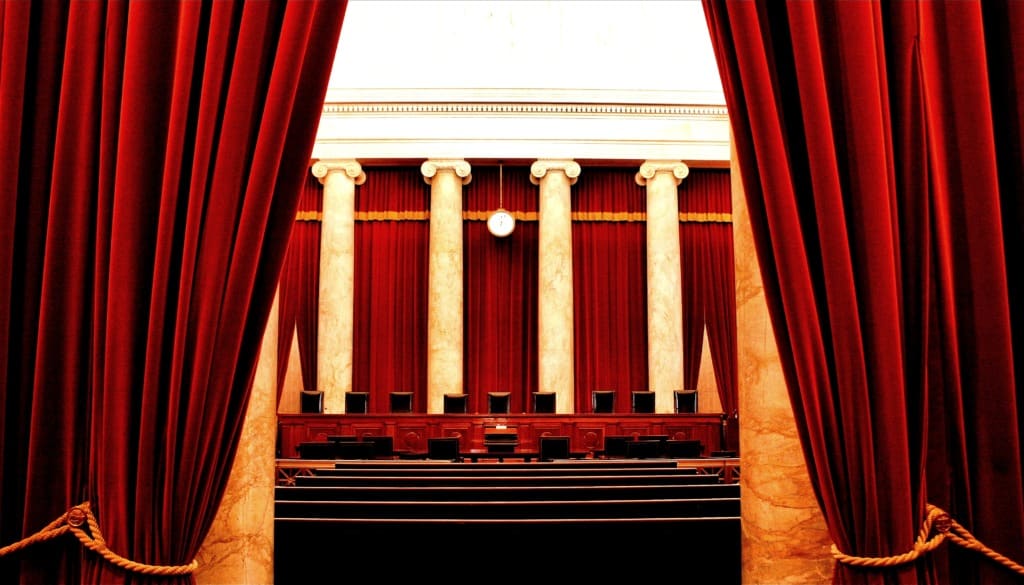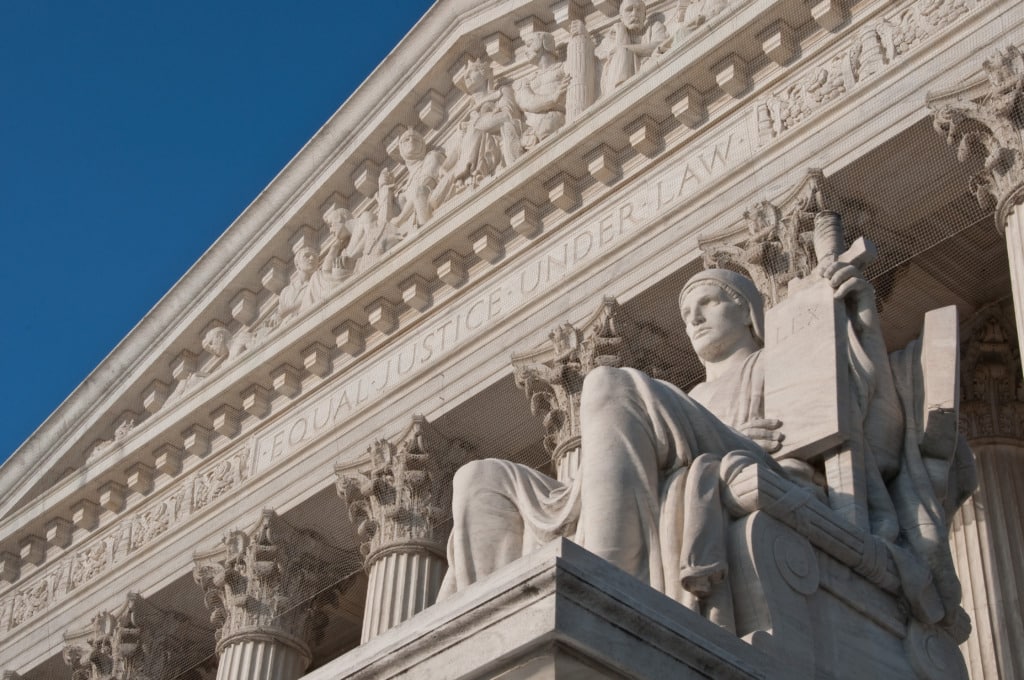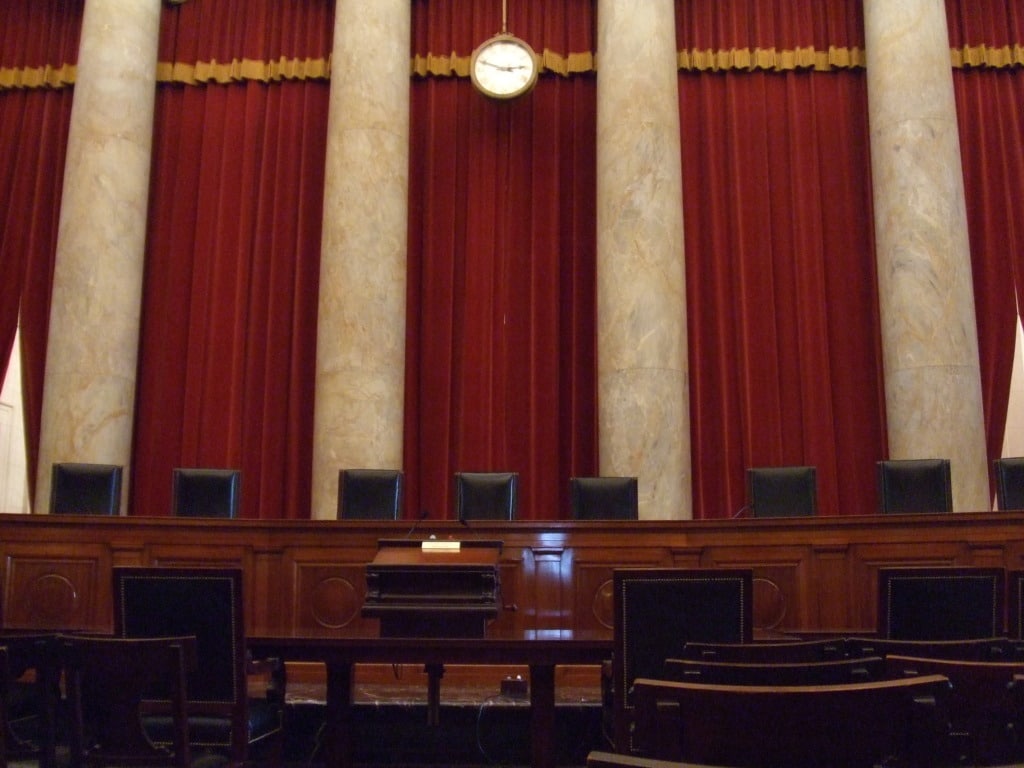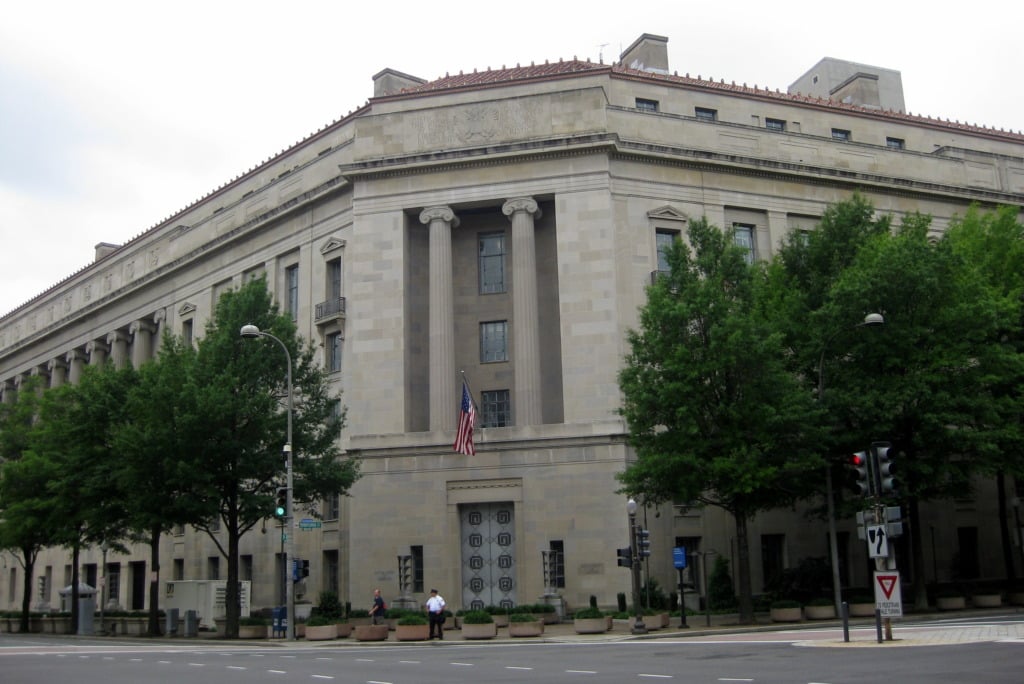Preview of Supreme Court Argument in Extraterritorial Trademark Case
On March 21, the U.S. Supreme Court will hear oral argument in Abitron Austria GmbH v. Hetronic International, Inc. to decide when the federal trademark statute, known as the Lanham Act, applies to the use of trademarks outside the United States. The stakes are high—not just for the parties arguing over a $90 million damages…
Continue ReadingSupreme Court Grants Cert in Admiralty/Choice-of-Law Clause Case
Earlier today, the Supreme Court granted cert in Great Lakes Insurance SE v. Raiders Retreat Realty Co. LLC. The question presented is whether, under federal admiralty law, a choice-of-law clause in a maritime contract can be rendered unenforceable if enforcement is contrary to the “strong public policy” of the state whose law is displaced. The…
Continue ReadingMaterial Support of Terrorism Looms over Supreme Court’s Social Media Case
On February 22, 2023, the Supreme Court heard oral argument in Twitter v. Taamneh. The case concerns an act of violence committed by ISIS in a Turkish nightclub in 2017. In bringing suit in the lower courts, plaintiffs alleged that Twitter, Facebook, and Google aided and abetted ISIS’s attack, in violation of 18 U.S.C. §…
Continue ReadingSupreme Court Likely to Shield Internet Platforms from Liability for Terrorist Acts
On February 21 and 22, the Supreme Court heard oral arguments in two companion cases regarding the liability of internet platforms for terrorists’ use of their services. Gonzalez v. Google concerns the scope of immunity for internet companies under 47 U.S.C § 230, specifically whether that statutory grant of immunity covers a platform’s automated suggestions…
Continue ReadingSupreme Court to Consider Tech Companies’ Liability for Terrorism
On February 21 and 22, the Supreme Court will hear oral argument in two cases, Gonzalez v. Google and Twitter v. Taamneh, that raise questions about how a civil cause of action set forth in the Anti-Terrorism Act (ATA) applies when known terrorist organizations use social media services. Both cases involve terrorist attacks (in Paris…
Continue ReadingOne More Thought on Halkbank
The recent Supreme Court argument in Türkiye Halk Bankasi A.S. (Halkbank) v. United States has captivated the transnational litigation community. Experts have weighed in in many forms, including on this blog. In this post, I want to add one more thought that I have not seen raised in this context. Even if the Court decides…
Continue ReadingThe Media Coverage of Turkiye Halk Bankasi, in Review
Last week, the Supreme Court heard oral arguments in Turkiye Halk Bankasi A.S. v. United States, a criminal case originating in the Second Circuit. The defendant, Turkiye Halk Bankasi A.S. (“Halkbank”), is a foreign state-owned commercial bank, headquartered in Istanbul, and a subsidiary of the Turkish government’s sovereign wealth fund. Charged with laundering over $1…
Continue ReadingExpert Recap and Analysis of Halkbank Oral Argument at the Supreme Court
Editor’s Note: This article also appears in Just Security. On January 17, the Supreme Court heard oral argument in Türkiye Halk Bankasi A.S. (Halkbank) v. United States. The case asks whether Halkbank, which is majority-owned by the Turkish Wealth Fund (TWF), enjoys immunity from criminal prosecution in U.S. courts. Last spring, I previewed the unresolved…
Continue ReadingExecutive Control Versus “Deference” in Halkbank
On January 17, the Supreme Court heard oral argument in Turkiye Halk Bankasi A.S. v. United States(Halkbank) on whether the Foreign Sovereign Immunities Act (FSIA) applies to criminal prosecutions. One argument advanced by the government in Halkbank (and other immunity cases) is that the executive branch has absolute control over immunity determinations not governed by…
Continue ReadingResolving the Immunity Issues in Halkbank
The question now before the U.S. Supreme Court in Türkiye Halk Bankasi A.Ş., v. United States is whether a foreign state’s wholly-owned private bank is immune from criminal prosecution in U.S. courts. The issue is framed as one of statutory interpretation, since the Second Circuit affirmed District Judge Berman’s ruling that the 1976 Foreign Sovereign…
Continue Reading